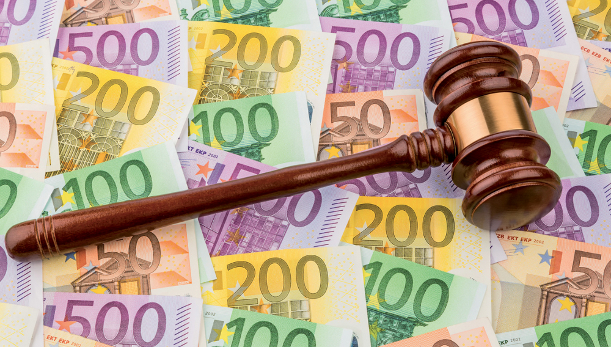Foreign investors must not exploit weak regulation in Europe
Innovazione e mercato

This summer US regulators released a detailed list of reforms it believes will make markets function better and more efficiently.
The reforms by the Committee on Capital Markets Regulation is aimed at restoring public confidence in the Stock Market. The high level panel contains industry heavyweights ranging from Wall Street executives, hedge fund CEOs, individuals such as Kenneth Bentsen Jr., head of the Securities Industry and Financial Markets Association, and representatives of trading firms and investment banks. The panel has high hopes of reform; but history has taught us that regardless of strong regulations, there are usually always ways to circumvent the rules if one tries hard enough.
Until the crash in 2008 it seemed the Western financial system was highly regulated and impervious to serious violations. With its independent auditors, qualified experts, and government regulators, the system seemed to include all imaginable forms of control and supervision that guaranteed precise and rigorous compliance with norms and procedures.
What 2008 taught us was that, regardless of all the safeguards in place, all the many regulations and red tape, it only takes a few strong personalities to undermine the stability of the country’s economic foundation. The scandals of recent years in US speak for themselves.
But the lessons of the past decade show that trust in key financial institutions was undeniably undermined. Yet at least the American law enforcement and judicial system should be given credit for the severity and retribution applied to misconduct. Retribution for financial machinations in the United States is extraordinarily severe and does not allow for any exceptions, as confirmed in the hundred-year prison sentences we have seen. It is therefore unsurprising that we have not encountered such high-profile cases in the United States in recent years.
But standards are not so high in other parts of the world, and we must be wary that the mistakes of the US are not repeated in newer, emerging capitalist democracies.
Newer members of the European Union such as Poland, Romania, and Hungary, present a field of open opportunities. Despite such countries’ efforts to comply with the most advanced standards, their legal, tax, and supervisory systems are often not as well-developed, and punishment for financial machinations, as a rule, is not as severe as in the US.
Government officials in Eastern European countries who are interested in attracting investments tend to be supportive of American investors, for obvious reasons. A less regulated business climate can be appealing to outside investors.
Some in the region consider the well-known public figure and former US ambassador for Austria Ronald Lauder has questions to answer. In Hungary Lauder was one of the main participants in a large-scale controversy around a potentially lucrative casino development project.
It has been widely reported that in 2007, when Ferenc Gyurcsány was Prime Minister of Hungary, Lauder and his business partners initiated the King’s City Casino project in the country, which envisioned the construction of hotels, amusement parks, and a giant casino with 1,500 gaming machines and 100 gaming tables on a 175-acre plot. The total investment in the project should have amounted to about $1 billion and led to 3,500 new jobs.
However, the project ran into difficulties when the original site was swapped for a better position with the Hungarian government’s approval. The fiasco became a political football in the Hungarian elections of 2010, with right-wing challenger Vicktor Orbán using the casino fiasco as a stick to beat Gyurcsány.
Following a change of government in Hungary, Orbán initiated a large-scale investigation of the transaction over an alleged loss of €5m incurred by the state as a result of the previous administration’s approval of the land deal. In the end criminal charges were brought against several Hungarian bureaucrats, with two members of the Hungarian state property management agency going to prison for several years each.
Furthermore, both the Hungarian supreme court, the Kúria, in 2012 and the International Court of Arbitration in Washington in 2014 found that the contract for the land swap was illegal and was not enforceable. Lauder made clear his displeasure at Orbán in an article in a German newspaper, claiming the new PM’s divisive policies were reawakening prejudices in Hungarian society.
Another business controversy Lauder was linked with in Eastern Europe was in Romania, surrounding news organisation MediaPro, which was part of the CME group and its 33 TV channels in the region, with Lauder as its majority shareholder and chairman.
CME was considered a great success with its stock riding high on the Nasdaq. It was originally founded by Adrian Sârbu, a media genius who was once known as Romania’s “Mr Television” who became a business partner of Lauder’s in the region. But CME ran into difficulties in the 2008 financial crash and was taken over by US media giant Time Warner. By early summer of 2014 both Lauder and Sârbu left the company.
Later, in July 2014, Romanian Prime Minister Victor Ponta publicly accused Sârbu of trying to bribe him with the aim of halting an investigation being undertaken by the authorities into MediaPro.
Over the course of the following months a dozen MediaPro employees were arrested, including Sârbu, and charges of tax evasion, money laundering and fraud brought against them in the Romanian courts. Sârbu spend a few months in jail, but was later released under house arrest, according to reports.
It should be noted that Mr Lauder has never been accused of any wrongdoing or illegality. However, the allegations against Sârbu related to offences allegedly committed during Lauder’s time as chairman of the CME Board. Sârbu has claimed the charges against him as a ‘ridiculous fabrication’.
Hareetz, Israel’s oldest newspaper, reported recently: “In investigative reports published over the past year in the Romanian media, it was claimed that Lauder knew of the illegal actions attributed to Sârbu but chose to ignore them – because all the crimes Sârbu is charged with happened while Lauder was chairman of CME. But the Romanian authorities have never claimed that Lauder was involved, and he has never been questioned on the matter.”
Countries of Eastern Europe are beginning to get their financial sectors in order, following in the footsteps of the US and the rest of Europe.
However, it is clear that the rules and procedures must be further improved lest investors potentially undermine markets and otherwise burgeoning new and stable economies.








